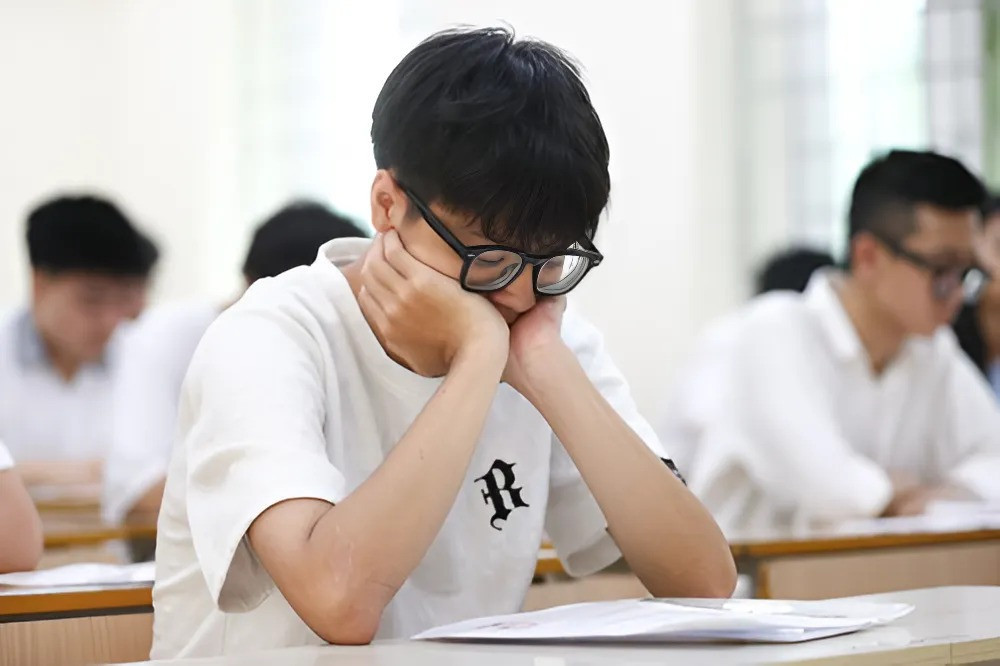
The latest draft circular by the Ministry of Education and Training (MOET) on student rewards and discipline in schools eliminates fixed-term suspensions. Instead, depending on the severity, primary school students will be reminded or asked to apologize, while secondary and high school students will be reminded, criticized, or required to write self-criticism reports.
According to the Ministry, discipline aims at preventing and deterring violations, helping students recognize their mistakes, and encouraging them to adjust their behavior, address consequences, and develop disciplined habits and lifestyles. However, schools must not use disciplinary measures that involve violence, humiliate dignity, or negatively impact students' physical or mental well-being.
After the draft was published, it sparked diverse opinions on the issue.
Pham Thi Lien, a parent from Nam Tu Liem district in Hanoi, believes that suspending students will disrupt their learning process and lead to negative consequences, such as feelings of discouragement or engaging in unhealthy activities.
"A former classmate of mine didn't return to school after a summer break. When we asked around, we learned that during the summer holiday, this friend was lured by others to rob a taxi. Although he luckily avoided prison, he had to transfer to another school,” Lien recalled.
She said that naughty students need to keep going to school to be guided and educated by teachers, rather than having their right to learn revoked, as this could push their future in a negative direction. In such cases, the goals of discipline and education are not achieved.
Tran Mai Loan, a parent of a 7th-grade student in Hanoi, emphasized that education must be humane. When children face issues, adults must find solutions. Suspension, in many cases, shows that the school and teachers have "given up" rather than serving as a deterrent to make students fear or repent.
"Discipline should be based on compassion and positivity. Children under 18 need guidance from family, school, and society. Those who make mistakes or act impulsively need more attention and better conditions to correct and improve their behaviors, rather than being isolated for a period," she said.
Is suspension necessary?
Nguyen Tung Lam, Chair of the Education Council of Dinh Tien Hoang High School, believes that disciplinary measures like suspension are necessary, though the duration should be shortened to 3-5 days.
"This is a period for students to self-reflect, seriously acknowledge and learn from their shortcomings," he said.
He clarified that suspension does not mean "leaving students free at home or wandering aimlessly." When suspending students from class, educators must create individualized education plans with the involvement and agreement of parents and students to ensure consistency between family and school, avoiding conflicting approaches that hinder education.
"Suspended students don’t attend classes, but they still have to go to school to follow this individualized plan. Homeroom teachers and school counseling services play a critical role in educating these students," Lam explained.
With over 30 years of experience of "reforming" thousands of rebellious students, Lam noted that stubborn students need time to analyze and recognize their mistakes. The duration varies depending on each student's awareness. Only when they acknowledge their errors and show determination to improve should they be allowed to resume learning.
Nguyen Hong Thuan, Director of the Center for Psychology and Education Research (Vietnam Institute of Educational Sciences), also believes that suspension for a fixed time is necessary, which gives students a calming time to reflect on their actions and consequences.
"For students who violate rules and cause negative consequences for themselves or others, homeroom teachers and schools must create individualized education plans. These require students to continue academic tasks while participating in additional activities under the supervision of teachers and parents, such as labor or addressing the consequences of their actions. In more serious cases involving legal violations, resolutions may follow the requirements of authorities. Thus, the duration of suspension must align with the specific education plan and not exceed regulatory limits," she said.
However, Thuan cautioned that rigid disciplinary frameworks may stop immediate misbehavior but are not sustainable. "Educators must identify the factors leading to students' actions to address them appropriately and effectively, helping students recognize their mistakes, accept reality, and proactively change their behavior in the long term, rather than relying solely on punishment and imposed sanctions," she emphasized.
Thuy Nga